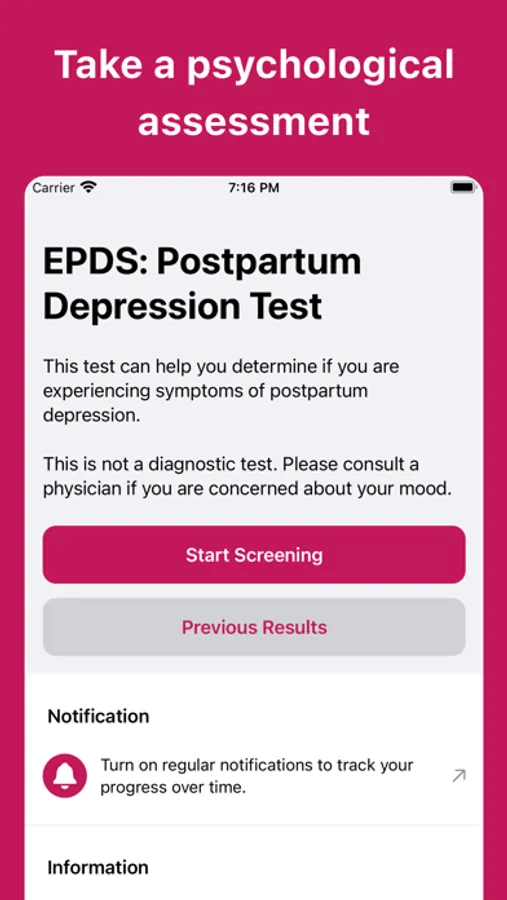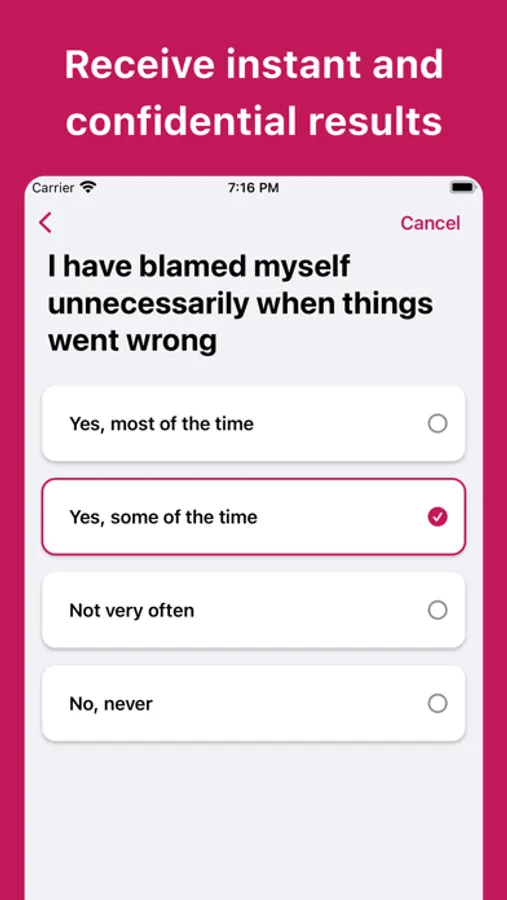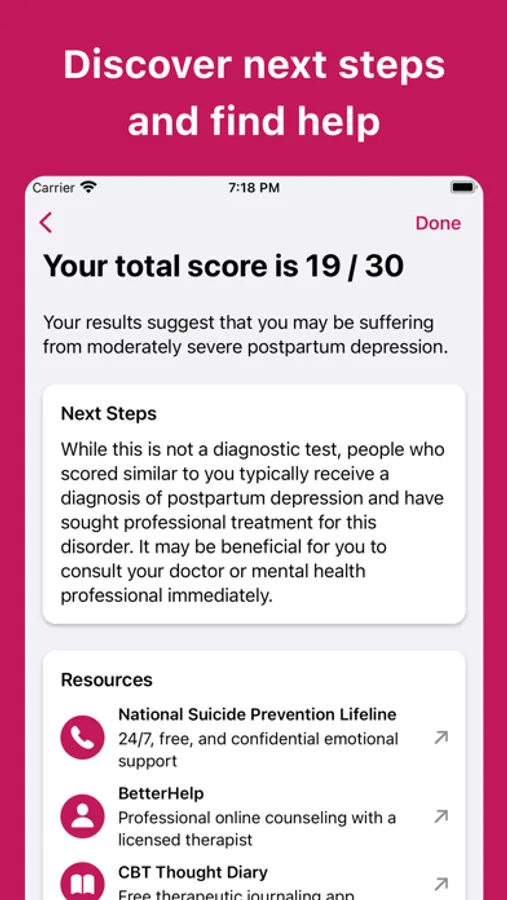With this health assessment app, you can complete the Edinburgh Postnatal Depression Scale to screen for postpartum depression symptoms. Includes a 10-item questionnaire and educational resources.
AppRecs review analysis
AppRecs rating 4.7. Trustworthiness 0 out of 100. Review manipulation risk 0 out of 100. Based on a review sample analyzed.
★★★★☆
4.7
AppRecs Rating
Ratings breakdown
5 star
81%
4 star
11%
3 star
4%
2 star
4%
1 star
0%
What to know
✓
High user satisfaction
81% of sampled ratings are 5 stars
About Postpartum Depression Test
Postpartum Depression is a serious disorder that affects around 15% of women following birth. While it can be normal to experience "baby blues" and feel a little sad or tired, postpartum depression is much more severe.
If you are having symptoms of Postpartum Depression, it is important to talk to a healthcare professional as soon as possible so you can get started with treatment. Postpartum depression can be effectively treated with medication and psychotherapy.
This app presents the Edinburgh Postnatal Depression Scale (EPDS), a widely used 10-item questionnaire used to screen for symptoms of Postpartum Depression.
Disclaimer: This test is NOT a diagnostic test. A diagnosis can only be provided by a qualified healthcare professional. Please consult a physician or mental health professional if you are concerned about Postpartum Depression.
Cox, J. L., Holden, J. M., & Sagovsky, R. (1987). Edinburgh postnatal depression scale (EPDS). Br J psychiatry, 150, 782-786.
If you are having symptoms of Postpartum Depression, it is important to talk to a healthcare professional as soon as possible so you can get started with treatment. Postpartum depression can be effectively treated with medication and psychotherapy.
This app presents the Edinburgh Postnatal Depression Scale (EPDS), a widely used 10-item questionnaire used to screen for symptoms of Postpartum Depression.
Disclaimer: This test is NOT a diagnostic test. A diagnosis can only be provided by a qualified healthcare professional. Please consult a physician or mental health professional if you are concerned about Postpartum Depression.
Cox, J. L., Holden, J. M., & Sagovsky, R. (1987). Edinburgh postnatal depression scale (EPDS). Br J psychiatry, 150, 782-786.


